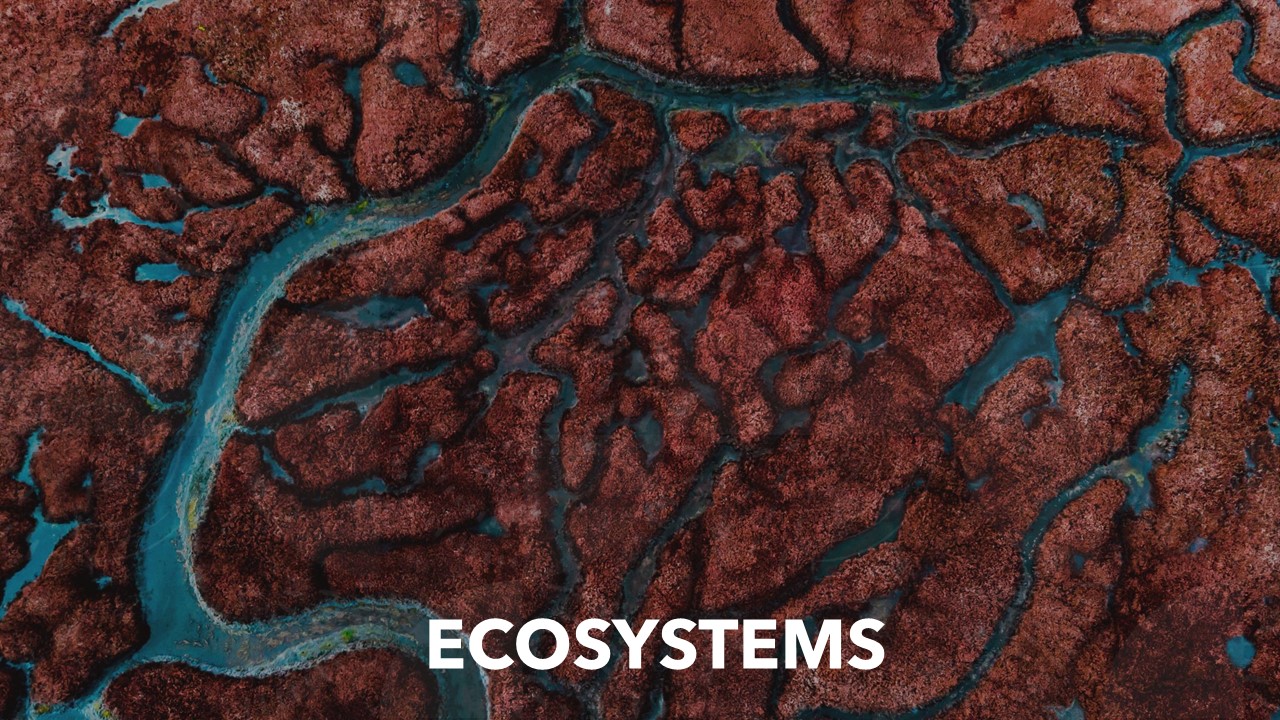Description
Introduction:
An ecosystem is a structural, functional and life-sustaining environmental system. The more complex the structure the greater is the diversity of the species in the ecosystem.
From the structure point of view, all ecosystems consist of two basic components: Biotic and Abiotic.
In this chapter, we will study about ecosystem and components in detail.
Ecosystem – An ecosystem is a community of plants, animals and smaller organisms that live, feed, reproduce and interact in the same area or environment. It comprises of both biotic (living) and Abiotic (non-living) components
An Ecosystem consists of two main components:
Biotic Component
Abiotic Component
Food Chains, Food Web and Food Pyramids
One of the earliest descriptions of a food chain was by a medieval Afro-Arab scholar named Al Jahiz: “All animals, in short, cannot exist without food, neither can the hunting animal escape being hunted in his turn.”
Charles Elton subsequently pioneered the concept of food cycles, food chains, and food size in his classical 1927 book “Animal Ecology”; Elton’s ‘food cycle’ was replaced by ‘food web’ in a subsequent ecological text.The notion of a food web was also mentioned in the writings of Charles Darwin.
Abiotic Factors:
Temperature | Sunlight | Humidity | Wind | Soil | Air | Water
Biotic Components
Producers | Herbivores | Carnivores | Decomposers | Parasites
Free
Free
Free access this course
-
LevelIntermediate
-
Total Enrolled4
-
Last UpdatedNovember 12, 2024
Hi, Welcome back!
Material Includes
- 🔥 Live Interactive classes with in-class doubt solving
- ⭐ Weekly Test and Quiz with instant tracking for progress
- ⚙️ Revision of the course after testing
- 👋 Fortnightly Parents and Tutor interactions
- 🌷 Expert monitoring of student's learning progress
- 👨👩👧👧 Daily communication over call, whatsapp and mail
- 💻3 hours on-demand video
- ✍4 downloadable resources
- ⌛Access for entire Academic Year
- 📱Access on mobile and Desktop
- 📋Assignments and review of the same
- 💡Tests and Correction by Board paper checkers
- 🏅Certificate of completion and Live tracking with Grade book
Course Duration:
0
Course level:Intermediate
Enrolled:4
About Course
In this section will learn this following chapters:
1.UNDERSTANDING ECOSYSTEMS
2.INTERDEPENDENCE BETWEEN ORGANISM
3.ABIOTIC COMPONENTS
Course Curriculum
UNDERSTANDING ECOSYSTEMS
-
ECOSYSTEM – PHYSICAL CLASS – PART – I
19:51 -
ECOSYSTEM – PHYSICAL CLASS – PART – II
20:30 -
ECOSYSTEM – PHYSICAL CLASS – PART – III
11:57 -
ECOSYSTEM – PHYSICAL CLASS – PART – IV
16:39 -
REVISION – PHYSICAL CLASS – ECOSYSTEM
16:13
INTERDEPENDENCE BETWEEN ORGANISM
ABIOTIC COMPONENT
Student Ratings & Reviews

No Review Yet


